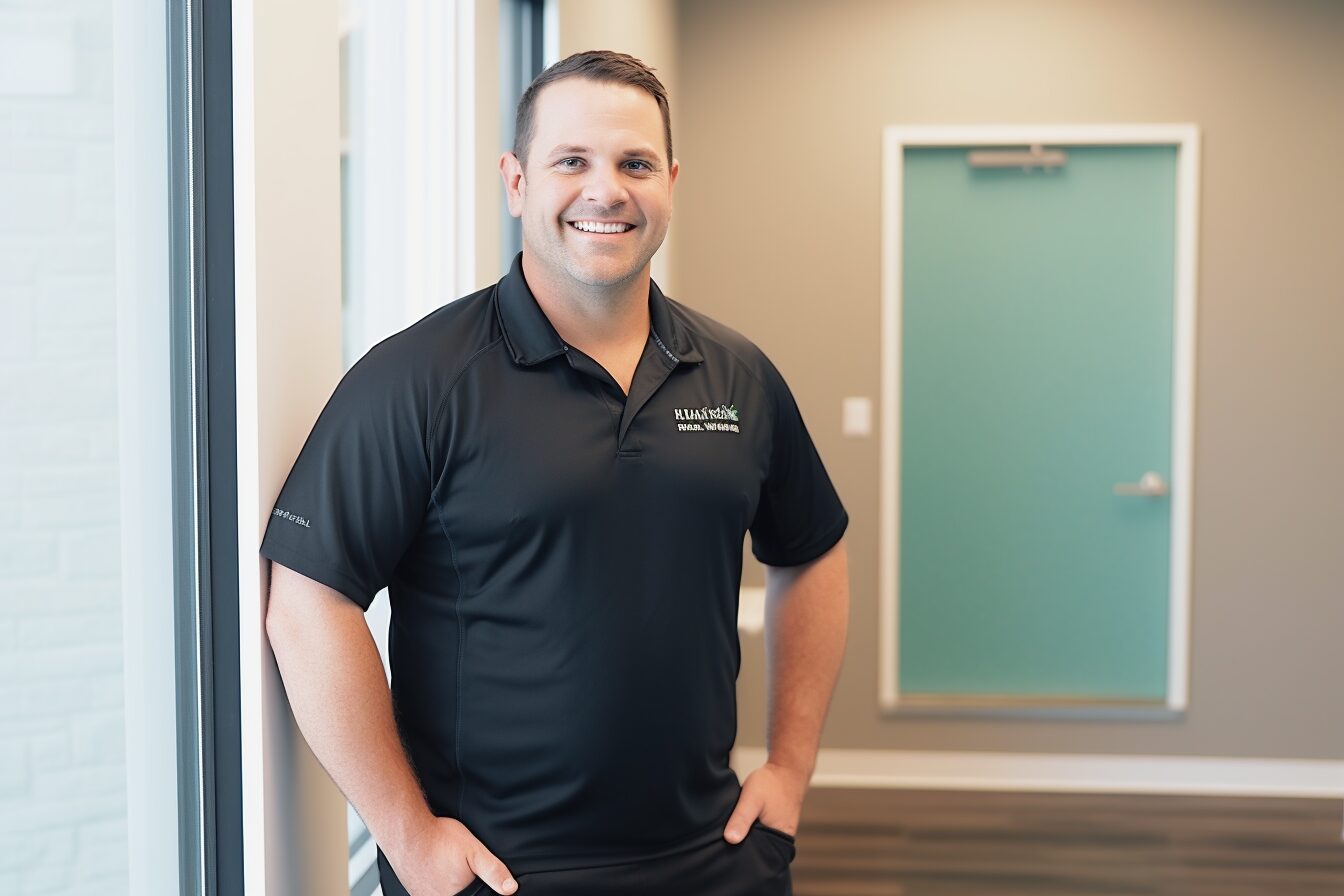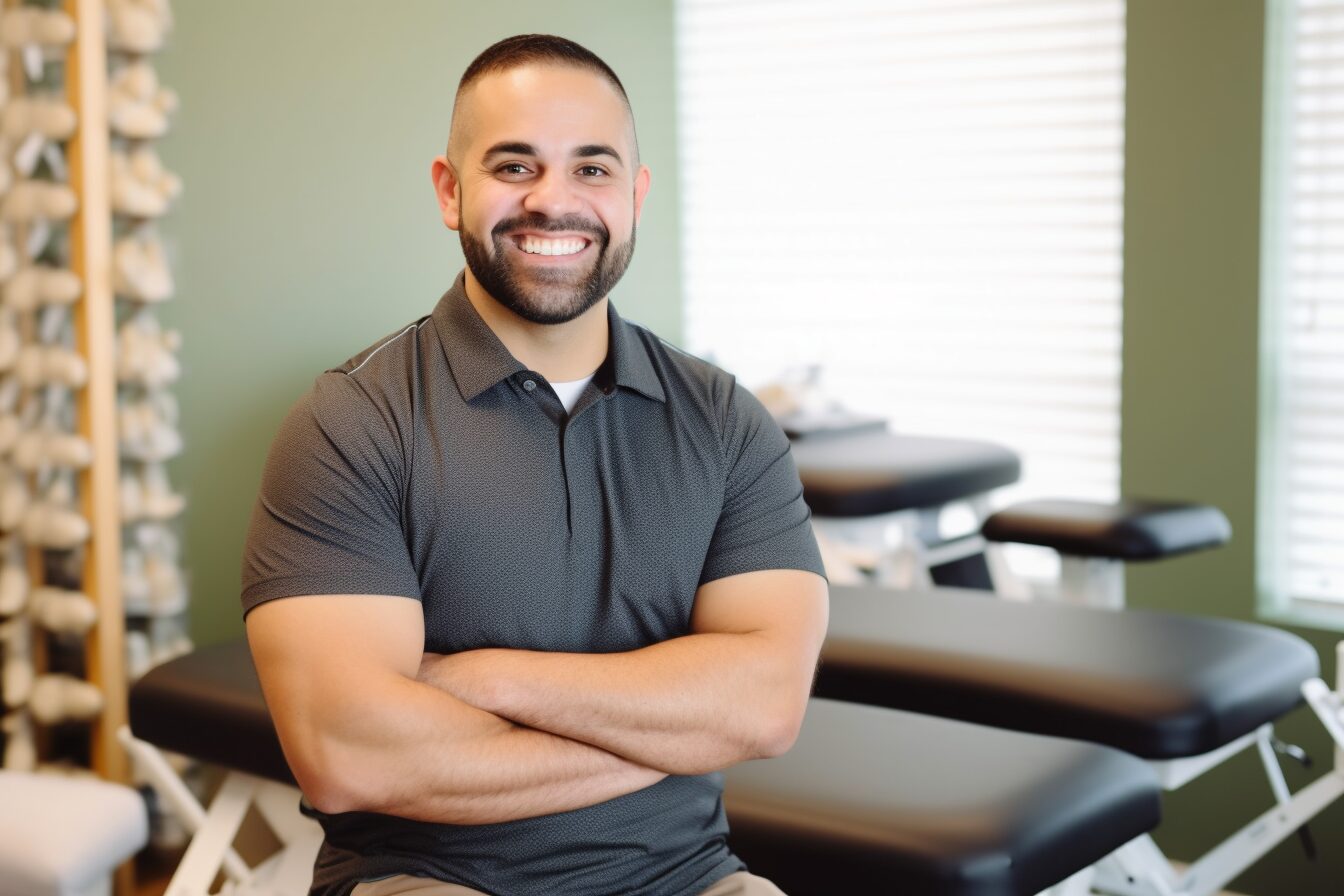Is a Chiropractor a Doctor? Demystifying Chiropractic Care
Let's dive straight into a topic that sparks curiosity and sometimes debate: is a chiropractor a doctor? Exploring this query isn't solely about the semantics of professional titles; it delves into comprehending the strenuous journey chiropractors embark on and their pivotal role in our healthcare ecosystem. You're in for an enlightening journey through the world of chiropractic care, from intensive education programs to specialized treatments aimed at improving your well-being.
We'll explore what sets licensed chiropractors apart, focusing on their unique approach to treating conditions like neck pain, shoulder discomfort, and more. Plus, we'll clarify those burning questions around their ability to prescribe medication and how they collaborate with other healthcare providers. Get ready for some clear answers on why over 70,000 practitioners have made this fascinating field their life's work.
Table Of Contents:
Clarifying the Role of Chiropractors in Healthcare

Understanding the role of chiropractors within healthcare can sometimes feel like solving a Rubik's Cube blindfolded. Yet, it doesn't have to be that complex. Peeling back the layers on where chiropractors stand in the healthcare hierarchy can simplify things quite a bit.
Do chiropractors earn the title of doctor, sparking curiosity and debate?
The question often arises: are chiropractors doctors? The answer is yes, but not in the way most people think. They don't go to traditional medical school; instead, they complete a rigorous Doctor of Chiropractic (D.C.) degree program. This extensive education equips them with knowledge mainly focused on diagnosing and treating musculoskeletal issues.
In fact, over 70,000 licensed chiropractors are making significant impacts across the United States today by providing specialized care that differs from your typical MD (Medical Doctor). They use their skills to manually realign the spine and enhance bodily functions, offering a unique approach not typically seen in standard medical practices.
To become one of these licensed practitioners working wonders with back pain or stiff necks requires passing national exams administered by bodies such as the National Board of Chiropractic Examiners. It’s not just about cracking backs; it’s about holistic patient care for conditions ranging from shoulder pain and leg discomforts to more systemic issues like health promotion through exercise science.
Key Takeaway:
Chiropractors are indeed doctors, but of a different stripe. They hold Doctor of Chiropractic degrees and specialize in musculoskeletal health, focusing on holistic care rather than just symptom treatment. Their education is intense and comprehensive, covering everything from diagnostics to nutrition.

Subscribe To Dr Mike's MVP Newsletter!
Exclusive content, interesting topics, real insights.

The Rigorous Path to Becoming a Chiropractor
Embarking on the chiropractic path involves much more than just adjusting spines—it's a demanding voyage filled with commitment, tireless effort, and a deep-seated zeal for nurturing patients' health. Embarking on this path is akin to undertaking a marathon, demanding yet fulfilling for the committed.
Before one can start making adjustments or addressing neck pain headaches, there’s quite the educational mountain to climb. It all starts with an undergraduate degree focusing on sciences like biology, chemistry, and sometimes even exercise science or health promotion. But grabbing that bachelor's degree is just the appetizer in this academic feast.
Next up is the main course: enrolling in an accredited chiropractic graduate program. Here's where things get spicy - students dive into over 4,200 contact hours of learning across various disciplines including anatomy and physiology. Imagine juggling classes in psychology and physics while also getting hands-on experience adjusting spines. It’s not for the faint-hearted.
To cap it off, future chiropractors must pass rigorous national board exams administered by bodies such as the Council on Chiropractic Education (CCE). Only then can they obtain their Doctor of Chiropractic (D.C.) degree – no small feat considering everything from diagnosing shoulder pain and leg issues to understanding how cartilage works come into play.
Licensing Requirements for Practicing Chiropractics
Achieving that D.C. title doesn’t mean you’re done yet. Each state has its own set of hoops to jump through before letting you loose on patients' stiff necks or pelvic pain arm woes. This typically involves passing parts I-IV of the National Board of Chiropractic Examiners (NBCE) Exam, proving your knowledge spans far beyond basic adjustments.
Navigating this rigorous journey guarantees that every certified healer truly understands the essence of delivering comprehensive treatment, targeting not just temporary relief but a life unburdened by persistent ailments such as migraines and cervical discomfort.
Key Takeaway:
Becoming a chiropractor is more than just learning adjustments; it's an intense journey of education, hands-on practice, and rigorous exams. This path demands dedication to mastering everything from anatomy to patient care before earning the right to heal.
Specialized Treatments Offered by Chiropractors

Addressing Chronic Pain Through Adjustments
Chronic pain, whether it's a stiff neck from too many hours at the computer or the lingering effects of an old car accident, doesn't stand a chance against the hands-on experience of licensed chiropractors. Licensed chiropractors meticulously fine-tune the body, easing ailments such as cervical discomfort and migraines through exact manipulations. It’s not just about cracking backs; it’s a form of art that requires rigorous national board certification.
This detailed method not only eases pain and enhances mobility but also cuts down on medical expenses, illustrating its wide-ranging benefits. Ongoing studies in the realm of chiropractic effectiveness are steadily augmenting the body of proof that backs these beneficial results. If you're grappling with the annoyance of shoulder aches, leg troubles, or hip discomforts, discovering solace might just involve a trip to your neighborhood chiropractic specialist.
Holistic Approaches to Patient Care
Beyond manual adjustments for musculoskeletal conditions lies a broader perspective on health promotion that every skilled chiropractor embraces: holistic patient care. This means they look at you as more than just a collection of symptoms but as an individual whose well-being depends on balance across physical structures and lifestyle factors alike.
Their education covers far more ground than most realize; biology, chemistry, psychology, and physics are all part of their degree program focus because understanding human health is complex and multifaceted. From providing advice on exercise science to help patients live better lives free from pelvic pain, and arm restrictions, or offering strategies for managing stress which can exacerbate back problems—they offer comprehensive solutions tailored uniquely for each person walking through their doors.
Key Takeaway:
Chiropractors tackle chronic pain with precise adjustments, offering a holistic approach to health that goes beyond mere symptom treatment. Their extensive education enables them to provide personalized care plans, blending science and wellness strategies for overall well-being.
Research Supporting Chiropractic Efficacy
Constantly evolving, evidence-backed studies keep highlighting the numerous advantages and proven efficacy of chiropractic treatments. This isn't just hearsay; it's supported by solid science that demonstrates how adjustments and holistic approaches can significantly improve patient outcomes for a variety of conditions.
The Science Behind Spinal Adjustments
One core aspect of chiropractic treatment is spinal adjustments, which have been proven to alleviate back pain, enhance mobility, and even boost overall health. Research indicates that the advantages gained from these procedures extend beyond temporary relief, paving the way for enduring enhancements in life's overall quality. The mechanics behind this involve not just the realignment of the spine but also the reduction in pressure on neurological tissue, which is key to maintaining optimal body function.
Beyond immediate relief from discomfort, regular chiropractic care contributes to sustained wellness by preventing future injuries and illnesses. This preventive approach aligns with current healthcare trends focusing on maintaining health rather than merely treating disease.
A Holistic Pathway To Wellness
Chiropractors don’t limit their focus to musculoskeletal issues alone; they adopt a holistic view towards patient care. By integrating lifestyle counseling into their practice—covering diet, exercise, and stress management—they help patients live fuller lives beyond simply being pain-free.
Adopting a more expansive outlook, this approach underscores the importance of preemptive measures and acknowledges how various elements of health are intertwined, an idea continually supported by contemporary scientific inquiry. Adopting this strategy strikes a chord in our modern era, heavily marked by chronic illnesses primarily attributed to lifestyle choices.
Career Opportunities for Licensed Chiropractors

In a world increasingly seeking holistic healing methods, the realm of chiropractic services is flourishing like never before. This means there are more opportunities than ever before for licensed practitioners to carve out fulfilling and diverse career paths.
Licensed Practitioners Working in Private Practice
The most traditional route many chiropractors take is opening their own private practices. Here, they have the freedom to build a practice that reflects their personal philosophy on health and wellness. They go beyond merely easing neck or shoulder discomfort; they enhance lives with a comprehensive strategy that weaves in physical fitness and wellness advocacy.
But it's not all about adjustments and alleviating hip pain. Running a successful practice also involves mastering the business side of things—something every chiropractor learns during their rigorous national board exams required by every state's licensing board.
Joining Multidisciplinary Healthcare Teams
A less traditional but increasingly popular path is joining multidisciplinary teams within hospitals or healthcare clinics. In such environments, chiropractors with licenses collaborate closely with physicians, physiotherapists, and various experts to deliver holistic treatment. Their expertise in treating conditions like stiff necks from car accidents or chronic pelvic pain complements conventional medicine beautifully, offering patients a well-rounded approach to recovery.
This collaborative environment also allows for continuous learning and sharing of knowledge among different healthcare providers—a boon for any practitioner eager to expand their skill set.
Innovative Roles Beyond Clinical Practice
Beyond direct patient care, some chiropractors choose careers in research, education at accredited colleges specializing in chiropractic graduate programs), or even consulting roles within corporate wellness programs where they focus on injury prevention and promoting overall employee health through ergonomics training which can help prevent conditions like shoulder pain leg issues from sedentary office work).
Key Takeaway:
The chiropractic field is booming, offering licensed practitioners diverse career paths from private practice to innovative roles in research and corporate wellness. This growth means more chances than ever to blend holistic care with fulfilling work.
FAQs in Relation to Is a Chiropractor a Doctor
Should chiropractors be called doctors?
Yes, they earn a Doctor of Chiropractic degree. They're not medical doctors but are trained healthcare professionals.
Does being a chiropractor make you a doctor?
Becoming a chiropractor grants the title of "doctor" due to their specialized training and doctoral-level education.
When did chiropractors become doctors?
The practice began in the late 19th century, with formal recognition evolving over time as educational standards developed.
Can chiropractors diagnose?
Absolutely. Chiropractors can identify health issues related to the musculoskeletal system and recommend treatment plans.
Conclusion
So, we've tackled the question: is a chiropractor a doctor? And yes, they are - doctors of chiropractic medicine, armed with extensive education and hands-on training to care for your musculoskeletal health.
Chiropractors don't merely perform adjustments; they undergo an educational odyssey, paralleling the intensity of medical school. From anatomy to patient care strategies, their expertise is broad and deep.
Chiropractors offer more than pain relief; they provide holistic approaches aimed at overall wellness. Remember those over 70,000 licensed practitioners? They're proof of the trust placed in this profession.
These practitioners skillfully alleviate neck agony, shoulder unease, and beyond, all without the need for medication prescriptions. Enhancing well-being via adept attention truly transforms lives.
In essence, this exploration makes one thing clear: Chiropractic care holds a unique place in healthcare – indispensable and thoroughly specialized.
18600 Main St STE 110, Huntington Beach, CA 92648

Subscribe To Dr Mike's MVP Newsletter.
Get In Touch
(714) 794-2171
Office Hours
Monday-Thursday:
7:00 am - 11:00 am, 2:00 pm - 6:00 pm
Friday: Closed
Saturday: By Appointment Only
Sunday: Closed

(714) 794-2171
Subscribe To Dr Mike's MVP Newsletter.
Office Hours
Monday-Thursday:
7:00 am - 11:00 am, 2:00 pm - 6:00 pm
Friday: Closed
Saturday: By Appointment Only
Sunday: Closed
18600 Main St STE 110, Huntington Beach, CA 92648
Huntington Beach Chiropractic | Copyright ©2026 | Website by iTech Valet
